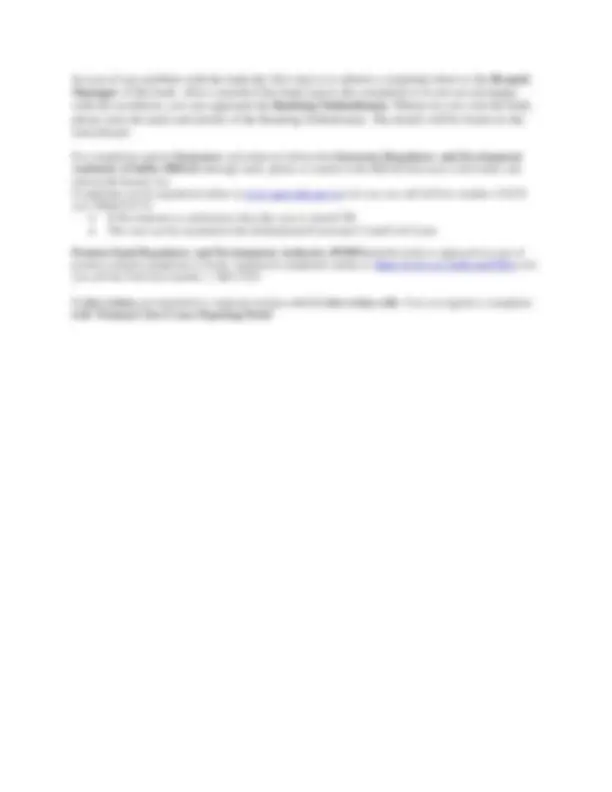



Study with the several resources on Docsity

Earn points by helping other students or get them with a premium plan


Prepare for your exams
Study with the several resources on Docsity

Earn points to download
Earn points by helping other students or get them with a premium plan
Community
Ask the community for help and clear up your study doubts
Discover the best universities in your country according to Docsity users
Free resources
Download our free guides on studying techniques, anxiety management strategies, and thesis advice from Docsity tutors
The banking industry has undergone significant changes in recent years, with the rise of technology and the increasing demand for online and mobile banking services. This has led to the emergence of new types of banks, such as neobanks and challenger banks. Neobanks are digital-only banks that offer a limited range of services, such as checking and savings accounts. They typically don't have physical branches and rely on technology to provide a seamless banking experience. Challenger banks are similar to neobanks, but they often offer a wider range of services, such as loans and credit cards. They are also more likely to have a physical presence, such as pop-up branches or kiosks. The future of banking is likely to be shaped by technology. We can expect to see even more innovation in the areas of online and mobile banking, artificial intelligence, and blockchain technology.
Typology: Lecture notes
1 / 3

This page cannot be seen from the preview
Don't miss anything!


Financial Literacy: An Overview This course helps you gain a clear understanding of money matters. You learn how to manage your money smartly, how to spend and save, and also how to grow your money. Some important financial concepts are: Needs: A necessity, something that is required, and something that is essential for life. Food, shelter, clothes, education, etc. are needs Wants: A desire, something that is wished for, something that is non-essential. Expensive shoes, expensive mobiles, expensive clothes are some examples of wants. The money you earn by working at a company is called Income. The money you spend on purchasing things, paying bills, etc. is Expenditure. The money you are left after that is our Savings. Why do you think savings are important?
is charged. The interest on credit cards is much higher. You must borrow money responsibly and only when absolutely necessary. You must complete your education first with the support of various government schemes. If someone is forcing you to get married you must call Child helpline number that is 1098. There are two types of taxes: Direct and Indirect. CGST and SGST. These are the little extra amount that you pay on purchase of items such as medicines, clothes, shoes, scooters, jewelry, furniture, etc. The tax amount is your contribution to the government. These are Indirect Taxes. Tax Deducted at Source (TDS) is collected tax from any source of income. TDS is also deducted from the interest earned. When you file your Income Tax Return (ITR) the TDS amount is returned to you by
A Banking Correspondent or a Business Correspondent (BC) is appointed by the bank to take financial services to the doorstep of individuals where banks are not available. Payment and money transfer can be done online; they are called Digital Payments. E.g., shopping, booking tickets, booking taxis and hotels, enrolling for a course and so on. Through Internet banking you conduct financial transactions at the bank’s website. Type of transactions are NEFT, RTGS, IMPS Mobile Banking is used to conduct financial transactions remotely using a mobile device. You can use Mobile Wallet, a way to carry cash in digital format. Your account is required to be linked to the digital wallet to load money in it. e.g., Paytm, Phone Pe. Different types of Insurance policy:
1. Life Insurance provides a financial cover where in case of an unforeseen death, the amount would go to your nominee at the time of her death 2. Property Insurance protects homes and other property like shops against theft, floods, earthquake, cyclones, fire or any unseen threats 3. Health Insurance covers medical expenses that may arise due to an illness 4. Accident Insurance provides compensation for the insured person meeting with an accident which includes a broken limb, loss of a limb, burns, lacerations, or paralysis.